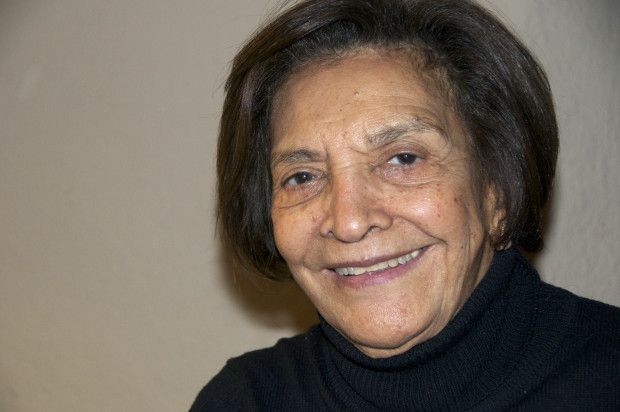Unity around the demand for a quota within the women's movement in Egypt
Women’s organisations in Egypt continue the struggle to put women’s rights on the agenda. Recently, 800 women’s organisations met in Cairo to discuss the way forward during this crucial transitional period.
In the end of September, The Kvinna till Kvinna Foundation’s partner organisation Alliance for Arab Women, together with the Solidarity Ministry in Egypt, organised a national conference on women’s role during the transitional period in the country.
”Women are now organised in such a way that they can put pressure on the government. But the conference also showed that NGOs are willing to cooperate with the government, as long as the government is willing to recognize women,” says Hoda Badran, chairperson of Alliance of Arab Women, one of the organisations that Kvinna till Kvinna supports in Egypt.
Still lots to be done
During the conference, a five-year plan for the Egyptian Feminist Union – where the 800 organisations are members – was launched. Hoda Badran says that the focus during the first year will be ”on the roadmap to arrive at democracy and reach the goals of the revolution”. The Feminist Union sees it as its role to inform people about the content of the roadmap. Their focus is to reach women outside of Cairo and try to make them involved in the political process. Similar initiatives are being carried out by other women’s networks, for example a knocking-on-doors campaign in support of the Egyptian revolution and the roadmap.
The roadmap, issued by the military in July, is not uncontroversial though. Saba Nowzari, Kvinna till Kvinna’s field representative for Egypt, says that the roadmap has some positive parts – such as the establishment of a transitional reconciliation committee – but she is also sceptical since the committee has been inactive and also partial.
“It refuses to acknowledge human rights violations that occurred during the summer. No proper investigation has been conducted, which has lead to the spreading of fear and rumours rather than tackling the national crisis. Lots of civilians are tried in military courts and sentenced to lifetime in prison without proper investigations. Reports about the police sexually harassing female detainees are being neglected. So in means of reconciliation and a roadmap for peace and security, there is still lots to be done,” Saba Nowzari says.
Pushing for increased participation
Another central issue for the Egyptian women’s movement is the new constitution. A draft is currently being discussed by a committee of 50, of which only 10 % are women. The Egyptian Feminist Union has put forward a number of demands to the committee that they want to see incorporated in the draft constitution, one being that women’s political participation should be increased through a quota.
”This has not been approved yet, but we are pushing for it and making coalitions with other feminist organisations to make it happen,” Hoda Badran says, adding that if the committee doesn’t listen they will not vote.
Saba Nowzari fears that the committee will only take bits and pieces of different women’s rights coalitions’ suggestions, since there are several different coalitions that don’t seem to coordinate their work and lack a unified voice.
”One area where there is unity, though, is in the demand for a quota that clearly gives women increased political participation. Despite this, though, the constitution committee has only five female members, of which two are heads of state institutions.”
“Not a religious country”
The Egyptian Feminist Union – which is one of these different coalitions – demands that equality between different groups (men and women; various religious groups) has to be spelled out very clearly in the constitution.
“We also believe that the constitution has to reflect that Egypt is not a religious country,” Hoda Badran says.
The participants at the recent conference also discussed how to work with regards to the upcoming elections.
”We will encourage women to vote, and encourage women to be candidates. We are also providing poor women with ID cards so that they can vote,” Hoda Badran says.
She is more optimistic about the future of Egypt now than during Mursi’s presidency.
”I think things are changing for the better. Hopefully, by the end of this year, we are on the right track.”
What makes you optimistic?
”The economy is starting to stabilize, which is very important. Another good sign is that tourists are starting to come back. There is also a new important NGO law on its way.”
Karin Råghall



